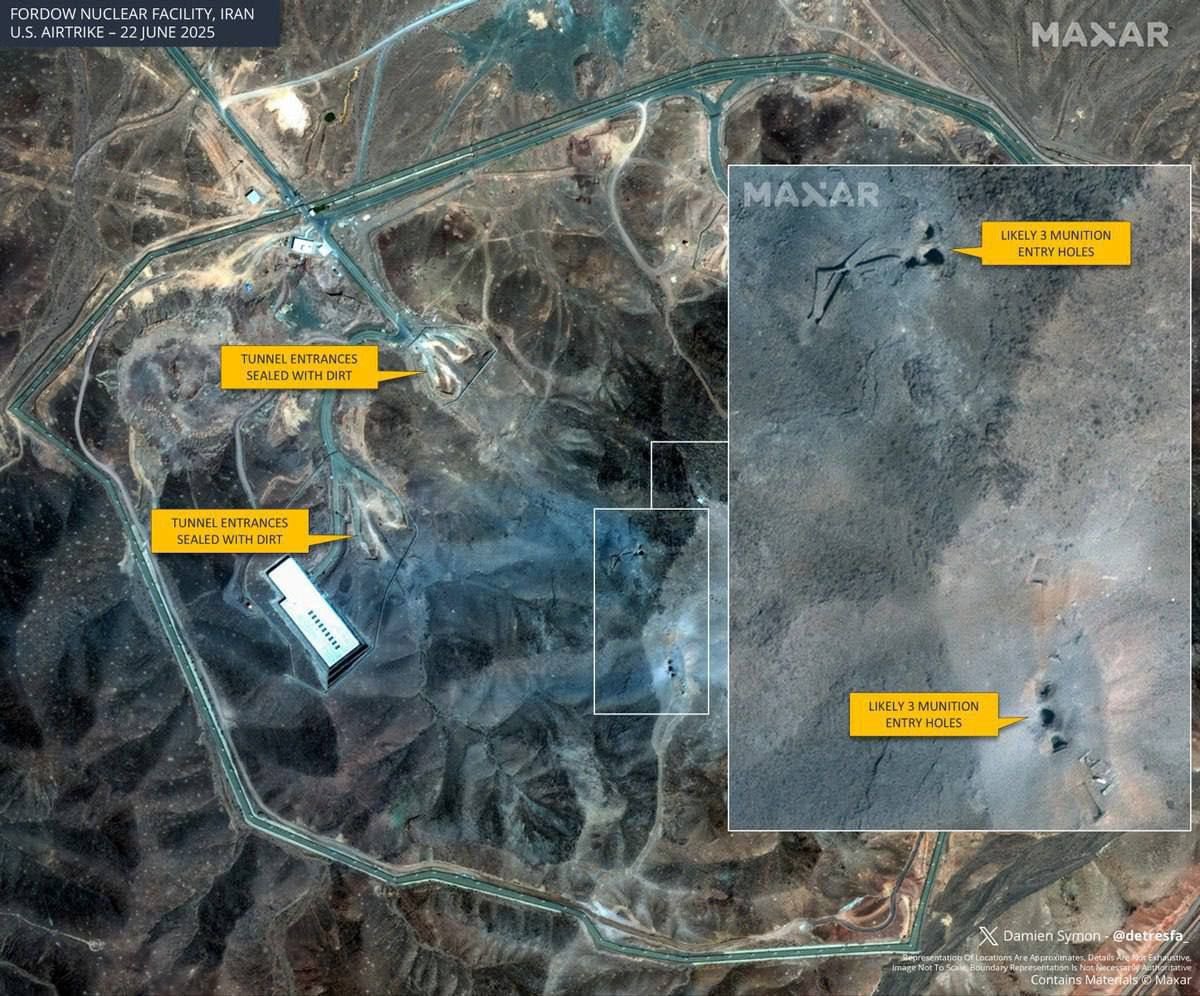Many Global Leaders Condemn U.S. Strikes on Iranian Nuclear Sites; India Says Dialogue & Diplomacy Only Way Forward
The U.S. decision to directly bomb Iranian nuclear facilities at Fordo, Isfahan, and Natanz has triggered widespread international condemnation, with fears of a broader escalation amid the ongoing Israel-Iran war.
United Nations Secretary-General Antonio Guterres warned that the conflict risks spiraling out of control, leading to “catastrophic consequences for civilians, the region, and the world.” He stressed that “there is no military solution,” urging all parties to return to diplomacy.
 |
| Image Source: RpsAgainstTrump on X |
Iraq labeled the attacks a serious threat to peace in West Asia. Government spokesman Bassem Al-Awadi warned against escalation, advocating for calm and negotiations. Qatar also expressed regret over the U.S. aggression, calling for an immediate halt to military operations and a return to diplomacy.
Pakistan strongly condemned the strikes, declaring them in violation of international law and reaffirming Iran’s right to self-defense under the U.N. Charter. Pakistan’s Grand Mufti Muhammad Taqi Usmani denounced Washington’s non-compliance with its commitments.
Lebanon President Joseph Aoun warned the attacks would only escalate regional tensions, urging restraint and constructive negotiations to prevent further violence. Egypt echoed similar concerns, stressing that the rapid escalation could have grave repercussions globally.
Kuwait voiced apprehension over the U.S. strikes, calling for an immediate cessation of hostilities and emphasizing the importance of dialogue to de-escalate tensions.
From Yemen, both the government in Sana’a and the Ansarullah Politburo condemned the airstrikes as a declaration of war against the Iranian people. Ansarullah warned that U.S. warships in the Red Sea could be targeted, blaming Washington’s unconditional support for Israel’s aggression against the Islamic world.
Palestinian resistance groups also reacted strongly. Hamas condemned the U.S. aggression against Iran’s sovereignty, while Islamic Jihad called the attacks a declaration of war and described Washington as the primary enemy of the region’s nations. The Palestinian Mujahideen Movement labeled both the U.S. and Israel as global sources of terrorism.
Bolivia President Luis Arce called the strikes “treacherous and aggressive,” warning that they not only destabilize the Middle East but also violate international law and the U.N. Charter.
The Russian Foreign Ministry condemned the U.S. strikes as “irresponsible” and in violation of international norms, adding that it is especially troubling given that the attacks were carried out by a permanent member of the U.N. Security Council.
Meanwhile, Indian Prime Minister Narendra Modi spoke directly with Iran’s President Dr. Masoud Pezeshkian following the strikes. Modi expressed “deep concern” over the rapidly escalating conflict and reaffirmed India’s long-standing position that dialogue and diplomacy are the only path forward to restore stability in the region.
The U.S. strikes mark a dangerous new phase in the conflict, dramatically expanding what was initially an Israeli-Iranian confrontation into a potentially uncontrollable regional crisis, now drawing in multiple global actors.
